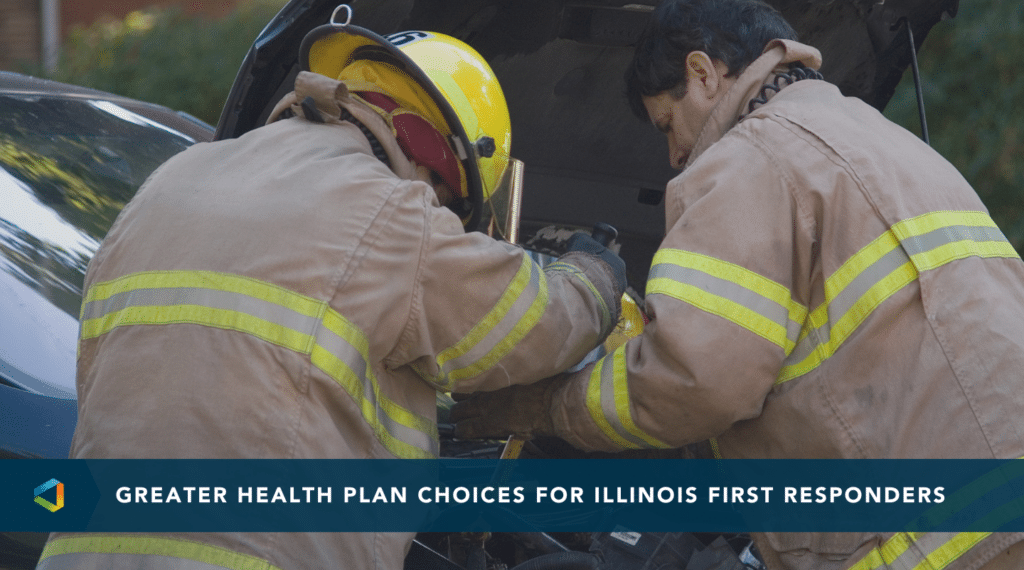I entered the insurance world from a background of sales and customer service with limited knowledge about health insurance.
I knew I had health insurance, I knew I needed health insurance, but I knew very little about the intricacies of employer offered health and wellness benefits. Entering this world was daunting, but as a self-proclaimed life-long-learner, I was up for the challenge! Teachers and peers can be a wealth of knowledge, but self-education is equally important. I am an analytical, detail-oriented and socially conscious person, so I knew it was time to do my research.
The world of health insurance is extensive and absorbing this information does not happen overnight. With the constantly changing landscape of this field, especially because of the Affordable Care Act, part of what you may initially learn will become obsolete due to changes in laws and regulations. All of these factors combined push the value of not only knowing information about insurance, but knowing where to find it.
Having just passed my insurance license exam and completing my first year working in health insurance, I have a clear view of what I wish I knew prior to working in this industry. It is unfortunate that many people don’t take the time to understand their health benefits and often make their choices based on the lowest price or a simple “check the box in the first column,” regardless of what would be best for their personal scenario.
In the 21st century, how often do you look up symptoms online when you are sick, look up the definition of a word you cannot define yourself, or use the internet to search for the best deal? The term “Google It” has become ingrained in our society. Self-education has grown with leaps and bounds and the time has come for the general population to learn how to educate themselves on their health and wellness benefits. Here are some basics that I’ve learned, that can help you become a champion of your own health benefits.
Basic Vocabulary
The health plans you are offered will be called things like High Deductible Health Plan (HDHP), PPO (Preferred Provider Organization), Hospital Deductible, POS (Point of Service), etc. Empower yourself by learning the basic vocabulary and their definitions at: https://www.healthcare.gov/glossary/
Know your Budget
In 2016, you are required to have health insurance and you will pay $695 per uninsured adult in the household (capped at $2,085 per household) or 2.5% of the household income over the filing threshold on your taxes.
http://fairhealthconsumer.org/medicalcostlookup.php is run by FAIR Health, a national, independent, not-for-profit corporation whose mission is to bring transparency to healthcare costs and health insurance information. This website provides you the average cost for medical services and procedures. This is an excellent resource when considering future costs and how much you need to save or should contribute to a Health Savings Account (if you are enrolled in a High Deductible Health Plan).
Another helpful website when budgeting for your health plan is http://www.goodrx.com/ because it allows you to compare prices and locations to help you find your prescription at the lowest cost. Prescription drug pricing is not uniform and varies from pharmacy-to-pharmacy so it’s important to check your options before buying.
If you have a high health bill and cannot pay for your prescriptions, call the doctor or hospital. They are sometimes willing to negotiate a payment plan. Don’t damage your credit when you have options.
Ancillary Coverage, like Dental, Vision, Life Insurance, Disability Insurance, etc., is very affordable when part of a group, like your employer. Life is unpredictable and many of these benefits are just as valuable to your dependents and beneficiaries, should your current physical status change drastically.
Preventive Care is Free
Your health plan covers preventive care services, like annual physicals and immunizations, at no additional cost to you (when seeing a doctor in your network). Preventive services are frequently covered at no cost or low cost for ancillaries, like Dental and Vision, too.
Use the internet to your advantage for everything related to your personal health plan.
- Print your insurance cards online from your carrier’s website.
- Access your carrier’s app on your smartphone.
- Pay your bills online.
- Does your doctor have a website? See if you can make appointments through their website.
- More and more carriers are now offering and covering Telemedicine visits (and some states now require carriers to offer or cover Telemedicine). Call or video chat with board certified doctors for a variety of non-emergency issues from any location.
Know your health status and your dependents’ health status.
Are you generally healthy? Do you take part in dangerous activities? Are your dependents consistently healthy? Are they always conscious of the safety of their activities? Insurance is provided to protect, not hinder or deter you from getting the treatments and services you need to stay healthy. Taking a good look in the mirror and looking to your future self is the best way to stay realistic about the kind of coverage you and your dependents need.
You wouldn’t buy a car without research, you will probably do research for your next pair of running sneakers, and we have all spent time reading customer reviews on websites like Amazon. Educating yourself on the basics of health insurance is another form of insurance unto itself – the insurance that you are making the best educated decision for you and your dependents. As Insurance Brokers we are advocates for you and your employer and we are always here to share our knowledge to better your healthcare experience.




